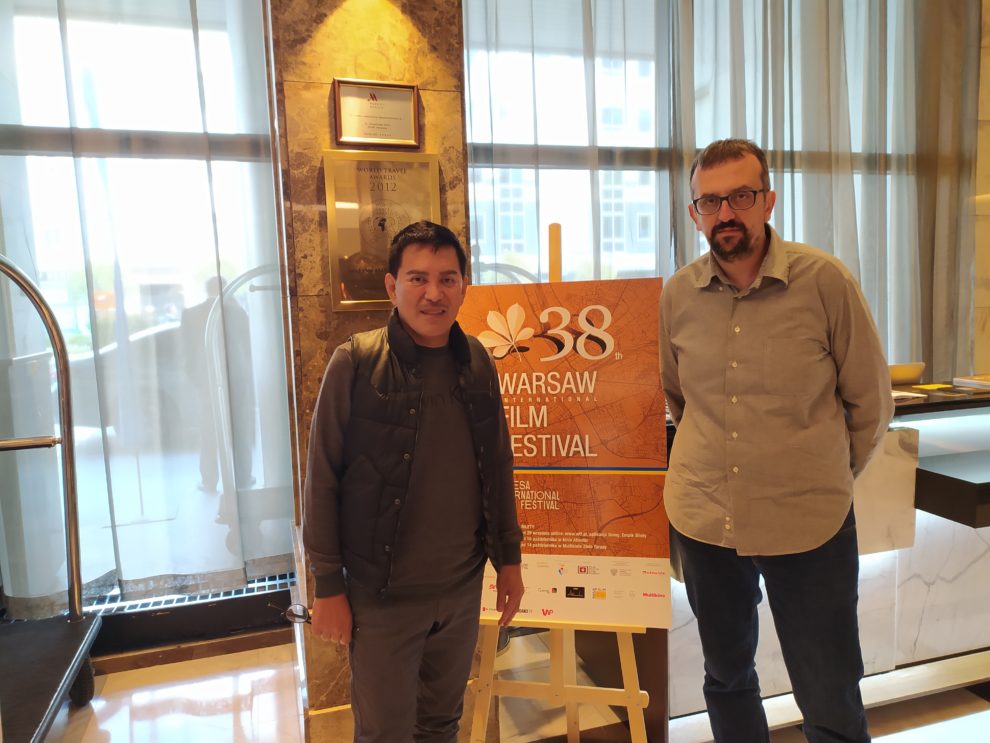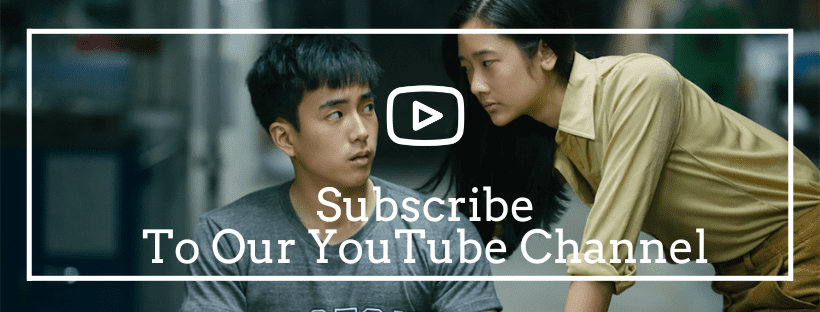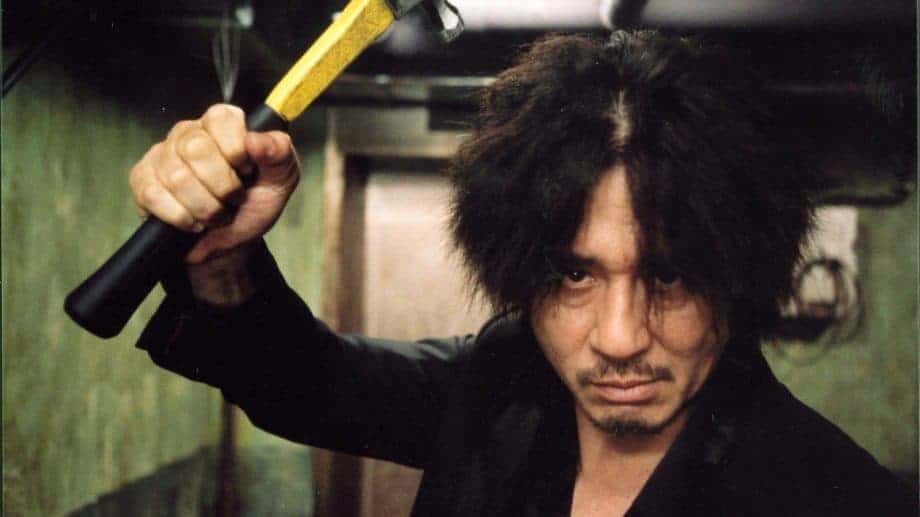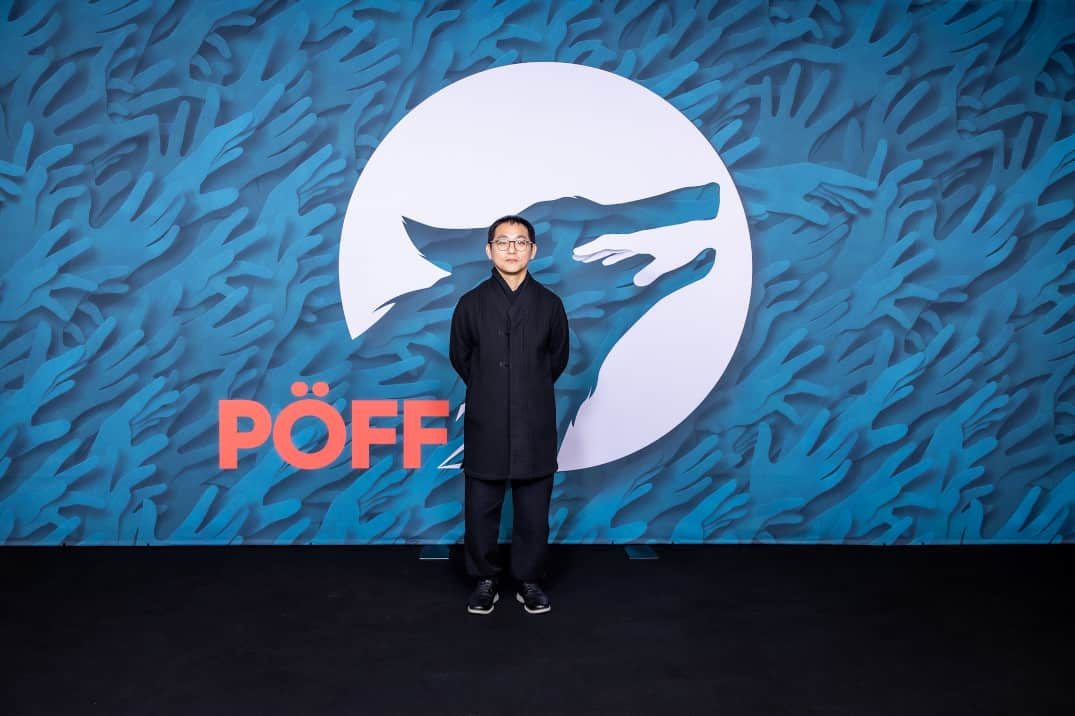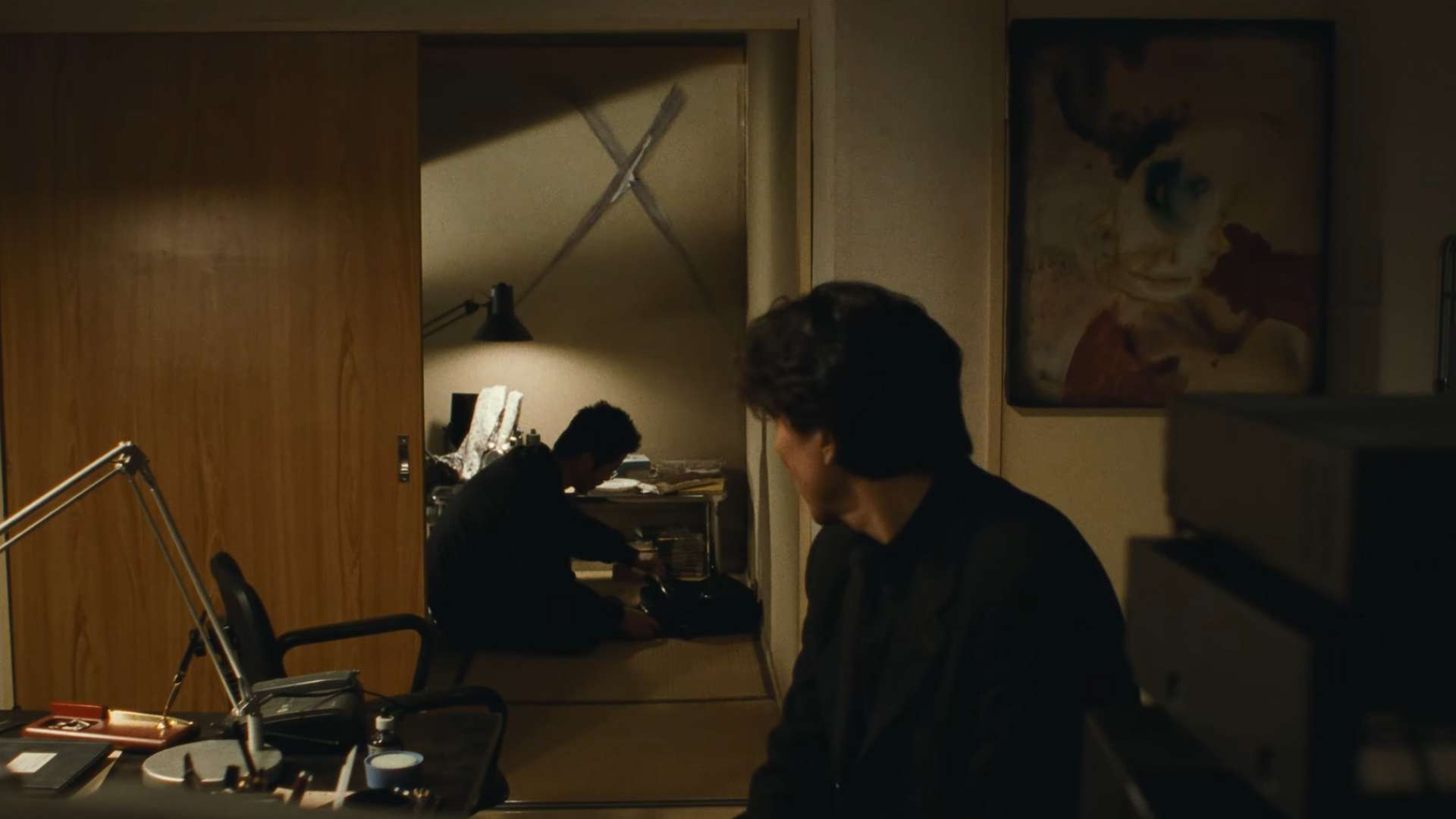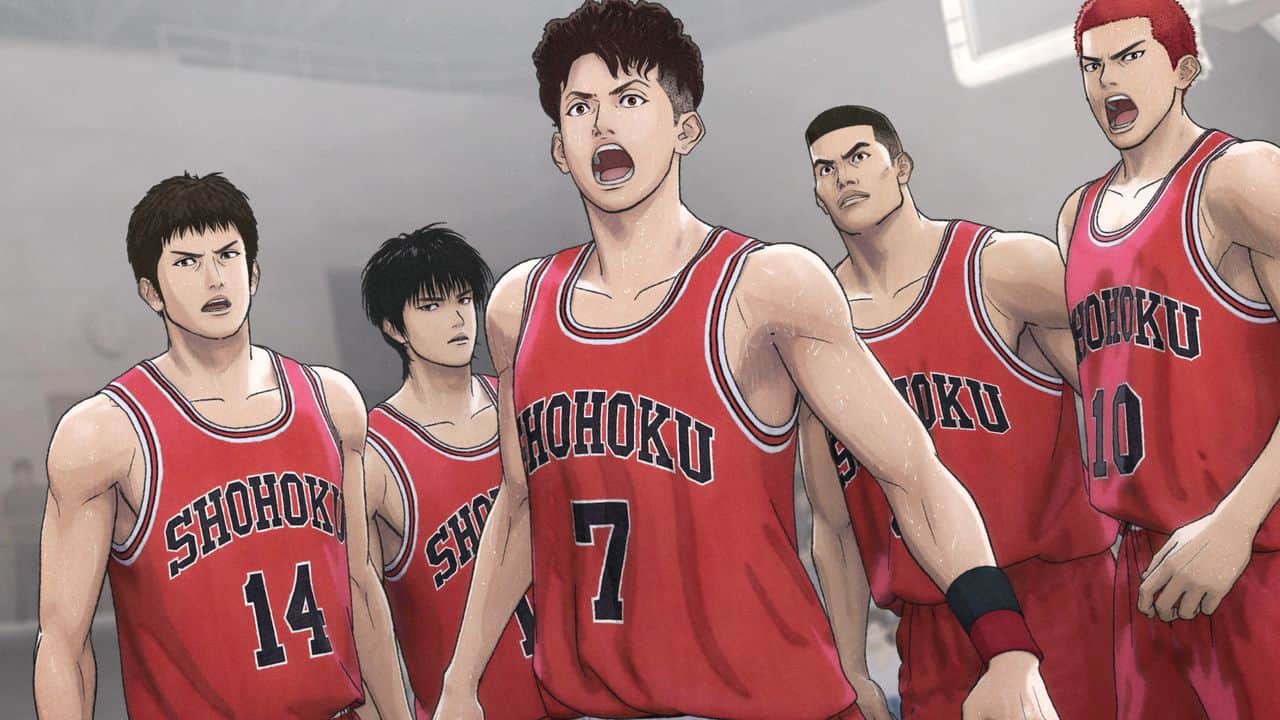Born in 1960 in San Fernando, The Philippines. Mendoza won the Golden Leopard Award at the Locarno Film Festival for The Masseur (2005) and is the first Filipino to receive the Best Director award at Cannes for Kina-tay (2009). In 2014, he received France's Chevalier dans l′Ordre des Arts et Lettres. His main works include Trap (2015), Ma Rosa (2016), Mindanao (2019), and most recently, Gensan Punch (2021), for which he won Jiseok Award at the Busan International Film Festival.
On the occasion of “Feast”, his latest work, screening at Warsaw Film Festival, we speak with him about the concept of the instict, Pampanga, religion, culture and food in the Philippines, shooting a film with no violence, no sex, and no politics, and many other topics.
Feast screened at Warsaw Film Festival
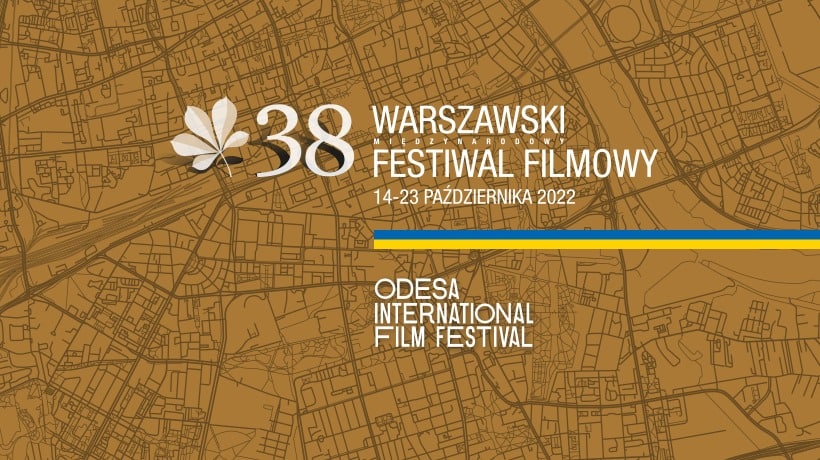
I am going to cut right to the chase. What would you do if you were in the protagonist's place?
(laughter) You know, this was based on several interviews we had, because in the Philippines, things like these really happen a lot. Because you get afraid, that is the instinct, you don't know if you want to stay or escape. If I was the protagonist, I would probably call help immediately. Even if I was with my father, I would easily help immediately. Because I think it is an instinct, if you accidentally hurt someone. Even if I said some bad words to someone, or lost my temper, eventually I would hold back and regret what I did, or feeling that way. I would try to make up immediately, that is my personality.
But as far as this film is concerned, based on the research that we did, there were situations like this when the person really did not know what to do and the father's instinct, normally, is to protect. It happened to me once, I experienced it with my friend, somebody was driving a car and accidentally hit my friend and I was in another car in the back and I saw it. What I did is I jumped out of the car and confronted the driver, but they were a couple and the one who was driving was the wife and she was pregnant and she did not have a license. So they escaped also but I chased them running and they stopped and I saw them exchange places.
Do you think the fact that he is rich, someone privileged, dictated the actions of the father?
I think more than his status in life, it is the father's instinct that dictated his actions, the instinct to protect your loved ones is very fatherly. He knows that his son has plans to go abroad, and he has separated from his wife, and he has dedicated his life to him, as a father. It is a way to protect his son, he doesn't want him to be a fugitive or go to jail.
Are you religious?
I am not religious, but I am spiritual. Religion is very much part of the Filipino culture, it is the only Catholic country in SE Asia, over 80% of Filipinos are Catholic and very religious. We have these traditions and a lot of people practice Distribution during the Holy Week and what you see in the film is not something that is unusual, it is very usual. But whenever I showed this in Busan I had a lot of reactions, considering that a lot of Koreans are also Catholic. Of course there were some who are not catholic and they had this question, like, “What is this, why are they hurting themselves?” But this is a very common sight in the Philippines. I tried to incorporate that culture and the traditions, not only about the food, but also about family as an institution, as something like a clan that you need to protect and be together, and religion is very much a part of that in our country. It is only for that reason that I incorporated that in the film. The fiesta in the opening where a lot of activities are going on is a common sight also in the Philippines; the Procession, we still do that, people doing these sacrifices. I thought it would be good to show this to other parts of the world, how Filipinos are as people, their beliefs, how they go on with their life. It is also an irony, being religious in contrast to what they practice and what they do in real life.
The guilt the son feels is connected to Catholicism?
Yes, that is why you confess to the priest, you confess your guilt. He cannot forgive himself because he has this guilt, because he is the one who committed the crime. Despite what they did to this family, giving back to this family, he feels guilty and he has to ask forgiveness from God, to the priest, and to the person he committed the crime on, to eventually forgive himself.
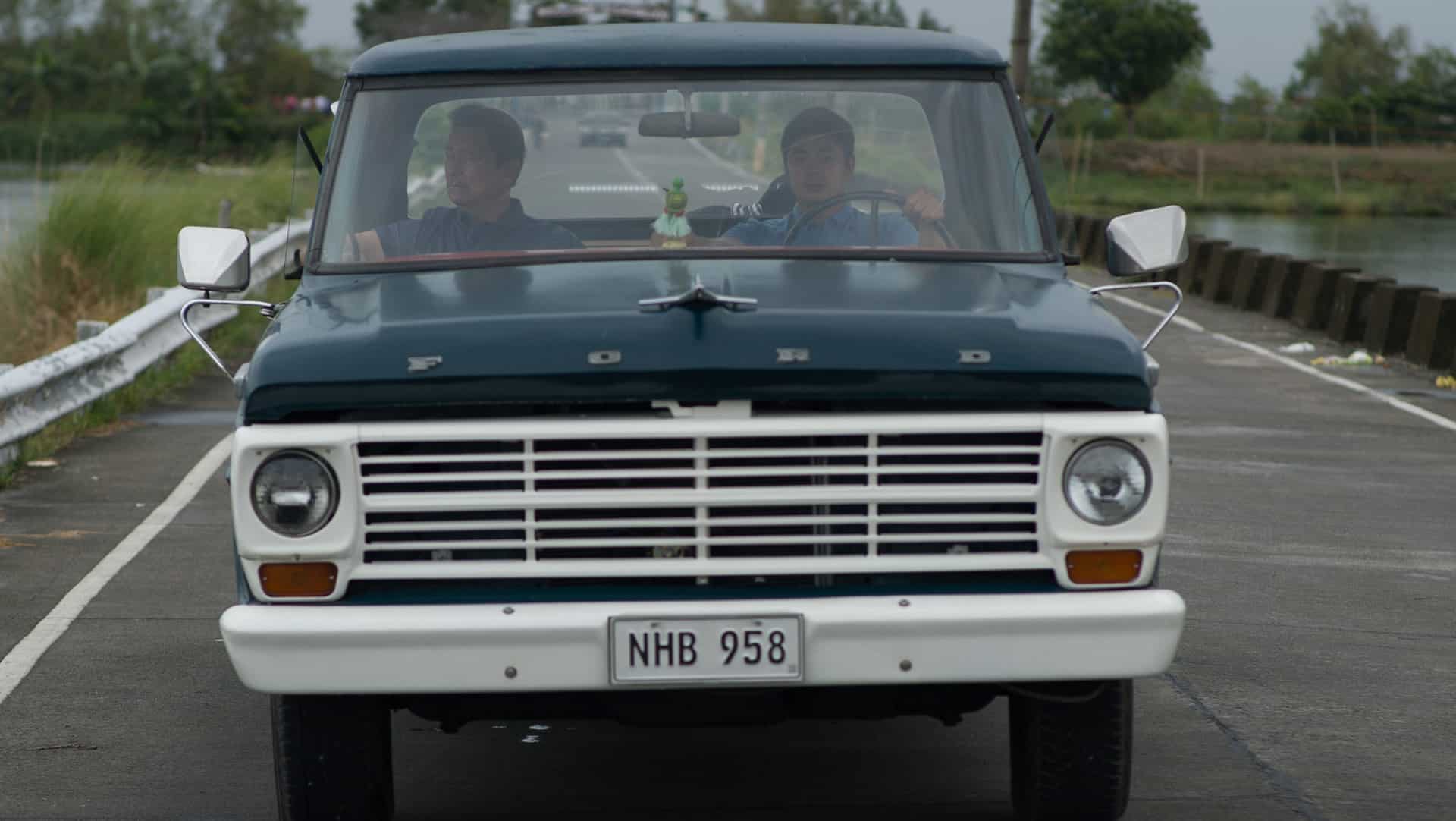
Can you tell me a bit about the characters of the two mothers in the film?
In the beginning, the first reaction of the perpetrator's mother is to hide it, to make it go away, she is very protective, she doesn't want something bad to happen to them. It is also an instinct to protect. The other mother, of the victim, settles it financially, because they are poor. I think it is also an instinct. What I am trying to do is to connect the irony of being religious versus being right and versus being loving and protective to your family. Also about the wife of the victim who did not agree to settle, because she needs justice for her husband. But because of their situation, because they are so poor, justice is served in a way, because the first family adopts them. It is a way to relieve whatever guilt they have, because they know that they committed a crime and on their part, because their family took the responsibility, they feel that they were able to pay for what injustice was done to the poor family.
It is an interplay of the situation, each and every character in this film, they have something to protect and to prioritize as far as family is concerned. For instance, the father of the guy who hit this person, his instinct is to protect the son, the mother is also the same, to protect the son. But on the other side, her instinct is also to have justice. But the interplay of their interest is what I try to focus on, depending on their character and the character that they are playing. It is quite common, especially between the rich and the poor in the Philippines, because you can also see the disparity. But the rich family, I think somehow they are trying to amend, they are trying to reach out so that they will be forgiven, despite their own shortcomings in life as a rich family. Because they are not also an ideal family, remember the wife used to be a waitress before, so she also understood the situation of the other mother.
So that is the reason you didn't choose to progress the story as a huge conflict between two families.
It could have been that, I have an edit where this poor family poison the whole family. I will show that after some time but the reason I did not use that cut is because I wanted to focus on forgiveness, on positivity versus taking revenge because of what happened during the pandemic. I think it is also my responsibility as a filmmaker what I show and what I share in terms of the things that I do. Because everybody is expecting from me to have the kind of ambience in the film that I make, which can be very vengeful, very sad and tragic. But with this one, I tried to keep an end where everybody forgives each other, everybody asks for forgiveness. You feel good after that, that people can be good in some way and regardless of what has happened among people, humanity can somehow prevail, we can all be good in this situation we are experiencing right now. That is what I shared in this film.
What about the food, which also seems to play an important part in the narrative?
I don't know if you notice, but they speak a different language in that part of the Philippines, in Pampanga, where this story happens, it is supposedly the food capital of the country. I am from that place actually. We cook good food, exotic food, and we got it from the Spaniards, when they settled in the Philippines. This province is where Spaniards taught people how to cook, and the locals tried to merge what they were teaching with local ingredients. So they came up with very good food. I tried to incorporate that in the film, as a metaphor in reaching out and dealing not only with your personal issues but also when you have issues with other people. For instance, in my family, I am the youngest and when I go to the province I have three sisters, all of which are very good cooks, and they cook the same recipes in their own variations, and they ask me to taste everything and tell my opinion. They ask me to go to their houses and to please them by eating their food. It is their way of communicating, of dealing with one another.
Can you give me some details about the casting?
Compared to my previous films, this cast is made of very famous actors in the Philippines. The one who plays the father, Lito Lapid, is a senator now. He was formerly a very famous action star until he became a senator. Coco Martin was my lead actor in “Kinatay”, “Service” and “Masahista”. He is now the most popular actor in the Philippines, doing TV series and TV shows that lasted for seven years or so. Jaclyn Jose won Best Actress in Cannes for “Ma'Rosa” and she played the mother in “Masahista”, our first feature together. Most of them are on TV and they are very popular on TV. Even the woman who plays the victim's wife is also very popular.
Can you also give some details about the visuals?
In terms of cinematography, in this film I wanted to show the local colors, the scenery, the tradition, the culture, religion, the food and the place itself. I wanted the audience to have a vision of what this community looks like in real life. We are near the river where you get all the fresh fish and food and we celebrate and we have a lot of fiestas. People are really into food, we are very critical even among our community about the food that we eat and the taste etc. I tried to incorporate all that in the movie. It is also my way of giving a tribute, an homage to my hometown, not to show something tragic or negative, but to feel good about the film after watching it. Because there is forgiveness, repentance.
Is it easy to work with popular actors?
Very difficult. When I discovered Coco Martin, 15-16 years ago, we could shoot outside and it was a lot easier. Now, with all the bodyguards, all the schedule and people on the street it is so hard because everybody recognizes him a mile away and if they found out he is filming, people would just flock and you could not control them. That is very difficult especially in my filmmaking, which is very dynamic and I don't want to rehearse or choreograph, so it was kind of a challenge
How did the audience receive the film in Busan?
At first, I thought that because this is not a film that you would expect from me, but maybe from a mainstream director, people who know me and my cinema would be disappointed. However, when you go to a festival you see a lot of people. There was this Filipino who has not been in the Philippines for the past 3-4 years because of the pandemic and saw the film in Busan. He said that he did not expect this film from me, but he was not disappointed. Because as a Filipino, finally he saw something nice and beautiful about our country, not the usual side of Manila I show in my films. I was surprised because I did not expect it. There were distributors, for instance in Japan, who took the film, and they loved it, although they were expecting something else. The audience was also expecting somethéng different at the end and the following morning I had a very early screening, and the same thing happened, people asking me and even the programmers about a different edit. And it was a full house at 9 in the morning.
So you did it on purpose, because everyone expected something else?
(laughter) Maybe… I want to edit differently about the ending, and maybe next year I can send you the link with the alternative ending.
Are there any plans to screen in the Philippines?
I am not sure because one of the conditions of the distributor in Japan is to show it next May in the Philippines. We had a very good deal, because this was produced by the Hong Kong Film Festival and they are the ones who decide about the distribution. They told me that I should hold the screening until mid next year.
How was your cooperation with the Hong Kong Film Festival?
They approached me and they asked me to shoot a film that does not have sex, violence or politics.
Why approach you for something like this?
(laughter) And I asked them, “Are you sure?”. But for me, that was a challenge, doing a film about other things. So I took the challenge.
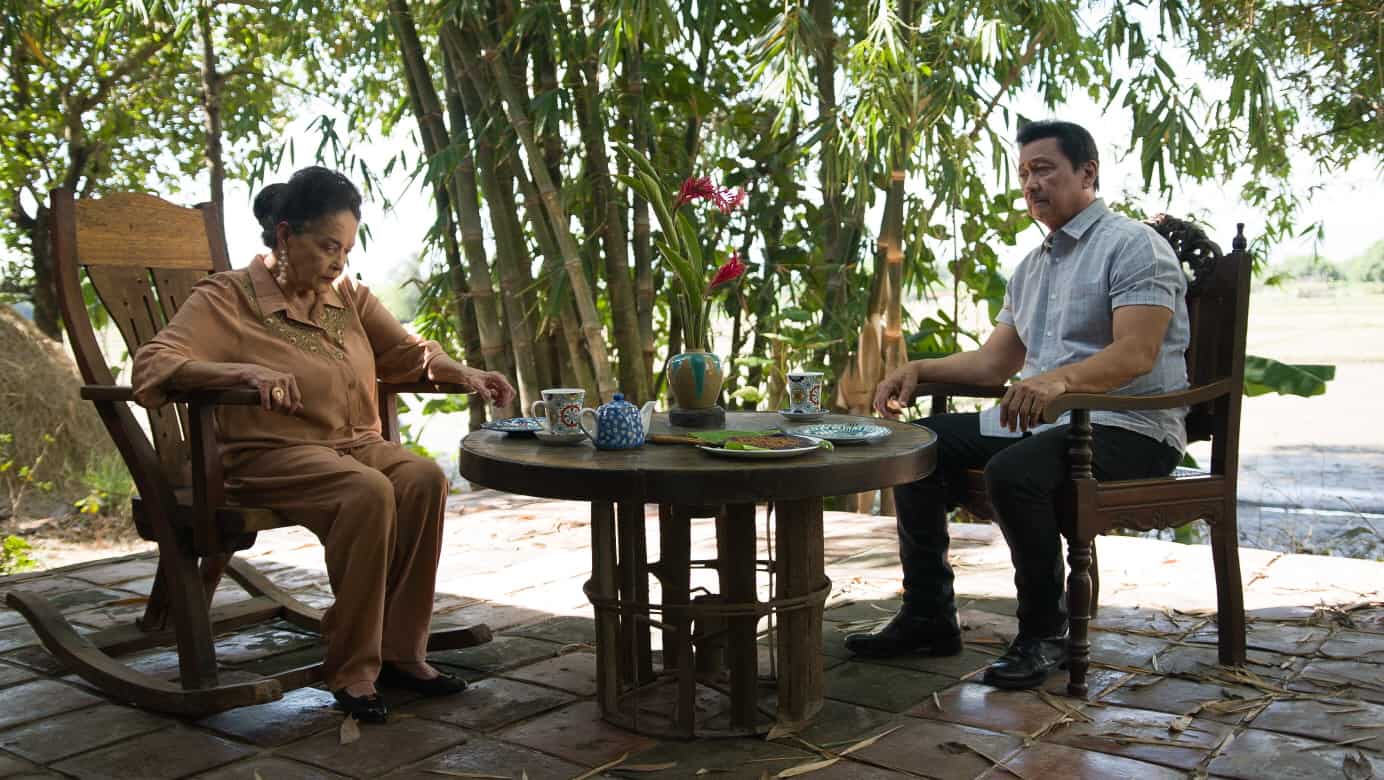
Are you going to continue in this path you think?
No, I have a film already, that will bring me back to what I have been doing before.
How is the situation in the Filipino movie industry at the moment?
There was just an announcement that we will push through with our yearly film festival that is happening in December, (Metro Manila Film Festival). We did not have it for the last three years because of the pandemic but now we are back to cinemas. There was a local, propaganda film that was screening in the Philippines that really made a lot of money, but otherwise, other local films are not making any money. Hollywood, however, is back in the Philippines and I think sooner or later, especially with the local festival, almost all genre films will be shown there and have local stars in them, people will go back to the cinema, hopefully. This festival is our cue, because it is very famous, very mainstream and attracts a lot of movie goers and I think that is what is important now, to get the interest of the moviegoing public first. Once you have them back in the cinema, then you can slowly do the kind of things that we are doing in the alternative sector.
Do you ever feel tired?
No, in fact even when the pandemic happened, I had a project with HBO that was on hold because of the pandemic. But even then, for me, everytime there is this situation that is holding me back the more I get challenged, I don't really believe in stopping. I wanted it to become my way of life. I just have this energy because I think if I stop making films I will get sick (laughter)


